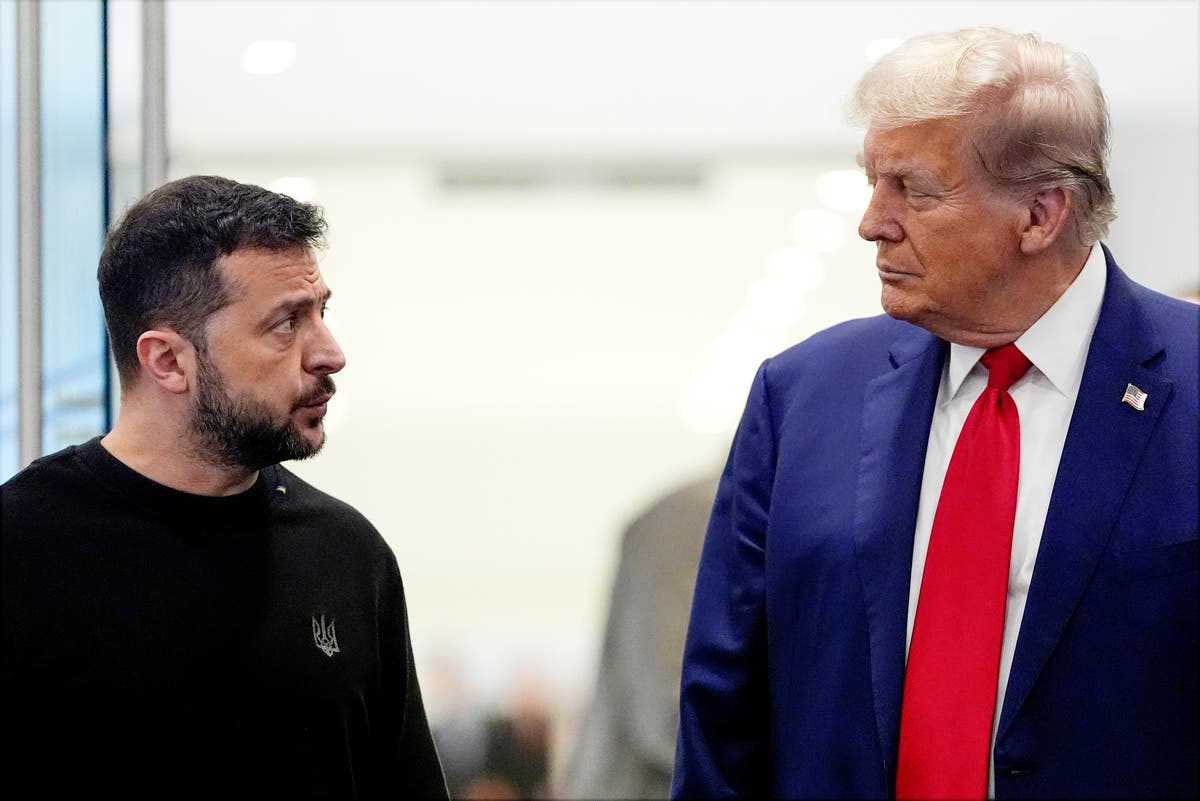In a generous tribute posted on his very own Truth Social page, Donald Trump declared that Emmanuel Macron had “done a wonderful job ensuring that Notre-Dame has been restored to its full level of glory, and even more so. It will be a very special day for all!”
A “special day” to be sure; the president-elect’s attendance at the ceremonies to mark the reopening of the cathedral, his first foreign visit since his election, also allowed the world to see the full glory, if it may be termed that, of the restoration of Mr Trump’s political supremacy. It is, in its way, a moment of truth, if not revelation, about the second coming of president Donald J Trump.
On balance, it is probably just as well that the United States was officially represented on this occasion by the first lady, Jill Biden, rather than the current president, because President Biden’s absence has left the diplomatic space free for Mr Trump to make some early progress on foreign policy.
In particular, he is faced with personal pleas from two of Russia’s neighbours, menaced by Vladimir Putin, for America to at least play a benevolent role in their respective futures. Mr Trump’s meetings with president Volodymyr Zelensky of Ukraine and president Salome Zourabichvili of Georgia are the focus of intense interest. Both are consequential, but it is the future of Ukraine, and European security, that is most immediately pressing in the minds of those world leaders gathered in Paris and elsewhere.
The author of The Art of the Deal, Donald Trump prides himself on his negotiating skills; his techniques, as we witnessed during his first presidency and in his recent tariff-based threats to Mexico and Canada, can alarm his interlocutors. Even so, he has a perverse way of cutting through that often seems to come from the wrong end of common sense, and can be uncomfortable for those involved.
Despite his typically boastful past remarks that he could end the war in Ukraine within 24 hours, no such peace settlement is being concluded over the weekend. What is happening is an opportunity for Volodymyr Zelensky to come face-to-face with Mr Trump again, and to present to him the realities of the merciless war of aggression waged by President Putin’s Russia, including documented war crimes, the targeting of civilians and, so especially dangerous from America’s point of view, the involvement of a coalition of America’s sworn enemies, North Korea and Iran (and, in more moderate measure, China).
Mr Trump may wave his hand and treat the prospective loss of vast swathes of Ukrainian sovereign territory with nonchalance, but Mr Zelensky can remind him that those lands are drenched in the blood of people who wished nothing more than to live their lives under a government of their own choosing. Mr Trump is right to want to end a conflict that has claimed the lives of hundreds of thousands, with well over a million total casualties, and 7 million refugees, but he should also be clear about who is responsible.
The president-elect should also be clear-headed about the weakness of the European powers – President Macron struggling to control his own destiny, Germany without a functioning government, and post-Brexit Britain seemingly unable to fund the defence it needs to help deter future Russian aggression. Such developments only highlight the indispensable value of the Atlantic Alliance and Nato.
There is, in truth, little to be optimistic about when contemplating the future of Ukraine. President Zelensky and his brave people have confounded expectations, not least in the Kremlin, that they’d be finished off within weeks of President Putin’s “special military operation”. Yet, after three years of bitter fighting, Ukraine has not lost this war.
However, there is also no realistic possibility that it can recover the eastern lands lost since 2022, let alone the Crimea and other territories illegally occupied by Russia since 2014. Those are, as the diplomats like to say, the facts on the ground. Absent a much more determined Western effort to make Russia disgorge its gains – something that will never happen under a Trump presidency – these realities lie behind the diplomatic effort that has started in Paris this weekend.
Yet contrary to the most dire of expectations, there have been signs in recent weeks, stretching back to before the presidential election, that Mr Trump does not think that simply agreeing to everything President Putin wants represents the kind of deal America needs. Mr Trump will require concessions from Mr Putin too, both territorial and political, and, ideally, guarantees about the security of Ukraine and the other European nations to its west.
Mr Trump will also know about Russian attempts to subvert recent elections in Georgia, Romania and Moldova, and he cannot fail to have noticed a certain coolness from the Kremlin and its sponsored media about his return.
During the Biden presidency, Russian attitudes appear to have tilted, such that it now seems to be America, rather than any individual president, that is perceived to be a permanent challenge to Russia’s regional hegemony and global ambitions – as was the case throughout the Cold War. Accepting the whole Russian agenda, and the notion that Ukraine is a non-country and should become a province of Russia – with the same fate awaiting Georgia and most of Eastern Europe – is certainly not something Mr Trump is prepared to do. That does not endear him to Moscow.
It seems likely that peace talks on Ukraine will commence in the new year. It is vital therefore in the crucial weeks ahead that European leaders, including Sir Keir Starmer, impress upon President Trump precisely why the fate of peoples in faraway countries matters to the national interests of the people of the United States, and why securing the right deal, not just any deal, is indeed in the interests of all concerned.

